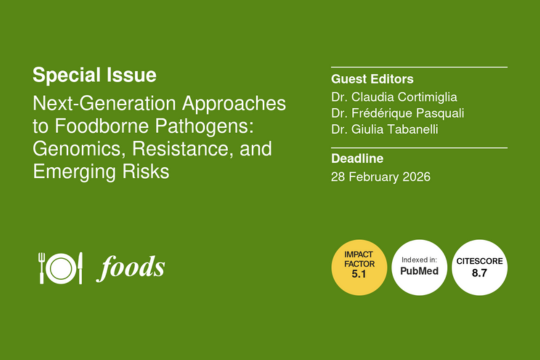The global burden of foodborne illnesses continues to demand urgent scientific attention, particularly in light of increasing antimicrobial resistance (AMR), evolving food systems, and climate-driven shifts in pathogen ecology. Recent technological breakthroughs including whole-genome sequencing, metagenomics, transcriptomics, and proteomics have enabled researchers to study pathogens at unprecedented resolution. These approaches not only enhance surveillance and source tracking but also uncover the mechanisms of virulence, stress tolerance, and antimicrobial resistance that allow bacteria to persist in diverse food matrices and environments. Furthermore, smart detection technologies, such as CRISPR-based diagnostics and prediction models, are paving the way for rapid and precise pathogen monitoring. We particularly encourage submissions that take a systems biology, ecological, or predictive modeling perspective to understand pathogen behavior in complex food ecosystems.
This Special Issue aims to provide insights into the following:
- foodborne pathogens behavior mechanisms and evolution;
- gene regulation networks and dissemination routes of virulence and resistance genes;
- biofilm formation and surface persistence in processing environments;
- safety assessment of new and alternative food matrices;
- development of robust, rapid, and field-deployable detection tools;
- development of risk mitigation strategies in food models.

